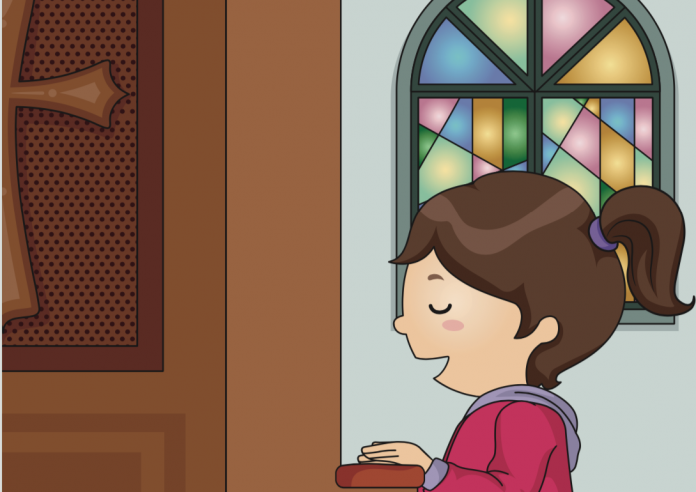
Q: “My class of third-graders are reviewing some guidelines for confession preparation, and we’re learning about sins against the Commandments and what they look like. But I’d like to not only introduce sins of commission, but also sins of omission. Any suggestions or tips for my lesson?”
— Mrs. G. in Grade 3
JEANNE HUNT RESPONDS…
We may think that “no foul is fair play,” as they say on the sports field. In many grade school text books, I hardly see a mention of sins of omission. It is no wonder that those omission sins fall through the cracks; we simply are not looking for them. A sin of omission means that we have a duty to do something and choose not to do it. It may not be that we deliberately lied — we just chose not to tell the truth … the whole truth, etc. Let’s explore how catechists can speak to “what I have failed to do” in our lesson plans.
Teach choices
A solid theology of reconciliation depends on seeing that we have choices to make. Doing nothing is a choice. This is where we begin with a lesson on omission. James 4:17 makes it clear: “So for one who knows the right thing to do and does not do it, it is a sin.” It is time to ask ourselves the question: “Should I have done something? Or did I just sit on my hands when I should have worked for good?”
Review examples
Students enjoy stories that explain an issue in a way to which they can relate. You can create a few situations in which a choice was made and a sin of omission occurred: a first-grader who fails to tell the truth, a fifth-grader who sees the new student eating alone and ignores her, a junior high student witnessing a bullying incident and failing to report it. After the students listen to the scenarios, ask them to decide whether or not it was a sin of omission and explain why. Be sure to include a few situations that were sins of commission. It is then that the fun begins.
Scripture discussion
Begin class with a key Scripture that teaches your main points. Matthew 25 can be a launching point for a discussion on justice. Jesus puts it this way:
I was hungry and you gave me no food, I was thirsty and you gave me no drink, a stranger and you gave me no welcome, naked and you gave me no clothing, ill and in prison, and you did not care for me. … Amen, I say to you, what you did not do for one of these least ones, you did not do for me. (Matthew 25:42-45)
What is most challenging about sins of omission is that we can ignore doing the right thing and never get caught. It is up to our conscience to blow the whistle on us.
Examination of conscience with omission sins
Consider those “failed to do” moments. Help the students turn on their radar by emphasizing it in the examination of conscience, or by creating a new, age-appropriate version of “failed to do” moments. This a tough change of heart. Jesus warns us that this is the cost of discipleship. We are inviting our students to see their choices rather than make a laundry list of sins.
JEANNE HUNT is a nationally recognized speaker and author in catechesis and evangelization offering parish missions, retreats, days of reflection, and workshops. Her latest books include Raising a Moral Child (Paulist Press) and Choir Prayers III (Oregon Catholic Press). Jeanne is on staff at Our Lady of the Visitation Parish in Cincinnati, Ohio.
PHOTO: WAVEBREAKMEDIA/SHUTTERSTOCK
This article was originally published in Catechist, January, 2020.




